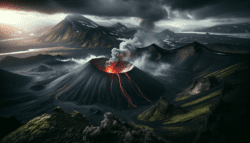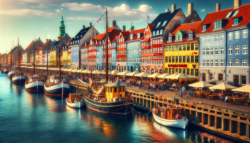Norway, known for its stunning fjords, northern lights, and rich Viking heritage, is a country in Northern Europe that exemplifies a harmonious blend of natural beauty and high living standards. Here’s a comprehensive summary:
List of National and Public Holidays for Norway in the Year 2024
- New Year’s Day – Monday, 1. January 2024
- Maundy Thursday – Thursday, 28. March 2024
- Good Friday – Friday, 29. March 2024
- Easter Sunday – Sunday, 31. March 2024
- Easter Monday – Monday, 1. April 2024
- Labour Day – Wednesday, 1. May 2024
- Ascension Day – Thursday, 9. May 2024
- Constitution Day – Friday, 17. May 2024
- Whit Sunday – Sunday, 19. May 2024
- Whit Monday – Monday, 20. May 2024
- Christmas Day – Wednesday, 25. December 2024
- 2nd Day of Christmas – Thursday, 26. December 2024

History
- Viking Era: Renowned for its Viking history, including seafaring, exploration, and settlements in the 8th to 11th centuries.
- Union Periods: Underwent periods of union with Denmark and then Sweden.
- Independence in 1905: Achieved independence from Sweden, leading to the establishment of a constitutional monarchy.
- World War II: Occupied by Germany; notable for resistance movements.
Geography
- Location: Part of the Scandinavian Peninsula, bordered by Sweden, Finland, and Russia.
- Land Area: Approximately 385,207 square kilometers.
- Terrain: Characterized by rugged coastlines with fjords, mountains, and extensive forests.
- Climate: Varied, from maritime to subarctic, with northern areas experiencing polar nights and midnight sun.






Economy
- Oil and Gas: A leading oil and natural gas exporter.
- High Standard of Living: Known for its high GDP per capita, robust welfare system, and low unemployment rate.
- Sustainable Practices: Pioneers in hydroelectric power and aiming for sustainable development.
Culture
- Languages: Norwegian (Bokmål and Nynorsk) with Sami languages in the north.
- Heritage: Rich in Norse mythology, folk traditions, and wooden stave churches.
- Music and Literature: Known for Edvard Grieg’s compositions and Henrik Ibsen’s plays.
- Cuisine: Features seafood like salmon, game meats, and traditional dishes like Lutefisk and Kjøttkaker.
Tourism
- Natural Attractions: Famous for fjords like Geirangerfjord, the Northern Lights, and outdoor activities like hiking and skiing.
- Cultural Sites: Includes the Viking Ship Museum and Bryggen in Bergen, a UNESCO World Heritage Site.
- Eco-tourism: Strong focus on nature conservation and sustainable tourism.
Society and Politics
- Government: Constitutional monarchy with a parliamentary system.
- Welfare State: Renowned for its comprehensive welfare system, including healthcare and education.
- International Role: Active in international peace and humanitarian efforts, including the Nobel Peace Prize hosting.
Challenges and Opportunities
- Environmental Sustainability: Balancing economic interests, particularly in oil and gas, with environmental protection.
- Demographic Changes: Addressing challenges related to an aging population and immigration.
Conclusion
Norway, with its breathtaking landscapes, rich cultural traditions, and commitment to social welfare and environmental sustainability, stands as a model of balanced development in the modern world.



